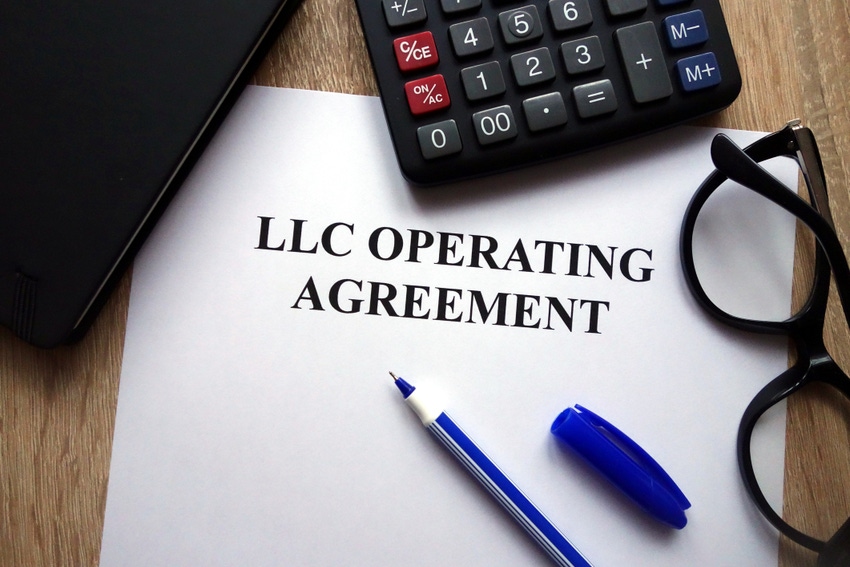
In a recent blog, I discussed the considerations between owning land as joint tenants or tenants-in-common. However, we are fielding more and more questions from landowners about whether an entity such as an LLC or Trust should own their farmland.
There tends be some confusion over these which hopefully we will help clarify here:
Irrevocable trusts
First, it is very rare I work with a family who actually proactively gifts land into an irrevocable trust while still living. Once a gift is made the land is now out of your name and you relinquish all ownership and control. Since it is irrevocable, once the gift is made it is very difficult to undo. This might be a fit for very wealthy landowners who may have an estate tax problem. Or, some have gifted land into a Trust who are concerned about future creditors who might make a claim on the farm, such as a nursing home or second marriage situation.
Irrevocable trusts, however, are a more common planning tool between spouses. Land can be held in an irrevocable family or marital trust after the death of the first spouse to protect the land for the next generation, while still providing income to the surviving spouse. This estate planning tool can provide asset protection from the surviving spouses creditors such as future estate tax, second marriage, nursing home, or lawsuit situations.
At the final distribution after the second death, these trusts typically go away and the land falls out to the children. Or, the land can continue to be held in trust for a certain period of time depending on how strongly you feel about the land not being sold, or if there are certain concerns in the next generation about management, minimum age for inheritance, or other factors.
Revocable trusts
A revocable trust is a decision now in phase one of your estate planning, while you and your spouse are both living. It is fairly well known that a Will states how and where you would like to distribute your assets. However, a revocable living trust can do the very same thing. The primary difference between a will and a revocable trust is in regards to probate administration. A will is subject to the probate administration process where a formal probate is filed and an inventory of your assets are of public record at the county courthouse. This administration process typically involves time delay, publicity, and of course probate fees. Whereas, even though a revocable trust may cost more to set up now, it usually saves on administration fees later while keeping your estate affairs more private and with less time to administer.
Limited liability company
Note, the word company at the end, not corporation. An entity such as an LLC is simply a family partnership you can set up to own your farmland. Partnerships such as this have become more popular because of their ease and flexibility for setting up, as well as for collapsing or changing later. This isn’t always the case with other entities you could place your farmland into such as an irrevocable trust or corporation. An entity such as this is of special consideration if there will be co-ownership of farmland in the next generation. It can help protect against the threat of partition or arguments which otherwise can arise if your children simply inherit undivided equal interests in the farm without any ownership structure.
The details of the ownership structure come inside the operating agreement of your limited liability company. If any in the next generation decide to sell, this is ok, but they must offer to sell it back to the other permitted owners of your LLC. If you define a permitted owner as lineal descendants, this promotes keeping your family farm in your family. If there are any heirs actively farming, there can be a first right of refusal to the lease the farmland under a predetermined rental rate or formula. There is still flexibility to change these provisions with a super majority vote of all the owners, otherwise, they stay intact for future generations.
If you choose to use a revocable living trust to carry out your estate planning rather than a will, then your revocable trust will own your ownership interests in the land entity just as your revocable trust will own all your other assets.
There are other considerations for a land entity such as an LLC as well. First, it can shelter the day-to-day risks of your farm operation from the equity in your personally owned land. Hence, liability protection. For those interested in a gifting program, it is much easier to gift ownership units of an entity than it is gifting actual parcels of land. An entity can also put you in a position to discount the value of your farmland since its now owned inside a closely held family business which is less marketable to non-family members.
And finally, as a farm kid what I like most about the concept of keeping the family farm together is for economies of scale to compete in the future or leverage for the family to purchase additional farmland if they wish. Can we really continue to afford to divide up the family farm at every generation?
Downey has been helping farmers and landowners for the last 21 years with their family farm transition, leasing strategies, finances, and general land consultation. He is the co-owner of Next Gen Ag Advocates and an associate of Farm Financial Strategies. Reach Mike at [email protected].
The opinions of the author are not necessarily those of Farm Futures or Farm Progress.
About the Author(s)
You May Also Like






